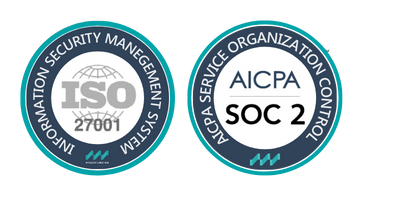Wiserfunding’s most recent blog post explores how the ‘multi-search’ feature is revolutionising risk management, and why you can’t afford to ignore it!
In today’s volatile economic climate, getting accurate SME risk profiles in the fastest possible time has never been more important. Lenders must act fast to seize opportunities before they evaporate. But traditional methods of company profiling are often clunky, slow and fraught with inefficiencies. A multi-search tool that allows company searches using a range of identifiers is the kind of radical game-changer capable of transforming operations and informing future strategy.
It is time for banks to sit up and take notice or risk falling behind.
Why does it matter now?
Rarely in our history have we experienced such an accumulation of events disrupting the status quo. From the ongoing Russia/Ukraine conflict to the huge inflationary pressures of recent months, and the hangover from Covid’s lockdowns and restrictions, turbulent economic conditions mean that accurate and timely risk assessments have never been more important.
For institutions operating across different jurisdictions like the EU and UK with their own distinct regulations and requirements, the situation has an added level of complexity. Navigating different regulatory guidelines is not only time-consuming and complicated but exposes banks to potential errors.
Banks are being forced to peddle ever harder and faster to keep pace.
The ability to quickly and easily compile risk profiles to inform the right lending decisions is a must – and this is where the multi-search facility on a credit risk platform can help.
What is ‘multi-search’?
Multi-search is a facility that allows customers of a credit risk platform to search companies using a range of identifiers – such as company number, VAT number, Legal Entity Identifier (LEI), or International Securities Identification Number (ISIN). This helps them find companies much faster and more easily, without the need for multiple pieces of information.
Using sophisticated technology, the search can be done in seconds, taking out the hours of manual legwork involved in tracking down extra information. There is no need to navigate differing local regulatory requirements as the technology does this automatically, ensuring a consistent approach.
A McKinsey report supports the case for a new approach. Its study found that the adoption of Legal Entity Identifiers (LEIs) provided ‘considerable financial savings’ across the full credit life cycle, highlighting the way more efficient and robust processes could directly boost the bottom line.
What’s wrong with my existing systems?
The existing capability of banks to search SME profiles relies heavily on manual, outdated processes that are hugely wasteful and hampering their efforts on a daily basis. Here’s why:
- Manual processes waste time and resource – Gathering company data manually takes hours and considerable effort. Often requiring lots of to and fro with the client, it is hugely inefficient and can take weeks to assemble what is needed. Analysts’ time and expertise could be far better spent.
- Data systems are fragmented and lack consistency – Often the data systems within banks operate in siloes meaning the data gathered is not uniform. This lack of coordinated approach means the whole process is much more cumbersome.
- Increased risk of error – The lack of a standardised system greatly exposes the process to error, leading to the wrong assessments being made.
- Data is quickly out of date – Information that is not accessed and processed in real-time is already historic and risks rendering the profile inaccurate.
- Opportunities are missed – Any delay in sourcing, processing or checking supplier information can mean the opportunity has been and gone or another lender has got there first.
- Risky loans are made – Delays in processing or errors lead to inaccurate risk profiles leading to bad loan decisions. This can inflict severe reputational damage and loss of market share.
- Regulatory compliance is more complex – Navigating the different regulatory requirements of different jurisdictions is far more complicated without a coherent automated process.
- Risk of punitive measures – Traditional methods of company identification often fail to provide the right details, risking non-compliance with the rules and the associated penalties.
- Strategy is reactive not proactive – The traditional manual methods of company identification don’t allow the kind of forward vision that helps them prepare for future risk. With the help of dynamic, predictive analytics they can pre-empt situations before they arise and take the necessary steps ahead of time.
How will I benefit from a multi-search facility?
Having a quick, easy, no-hassle way of compiling a company risk profile helps banks stay one step ahead. Offering a host of operational advantages, it also unlocks business opportunities that would otherwise be out of reach, helping you:
- Save time – automated and streamlined processes mean you can obtain accurate risk profiles in seconds and eliminate the delays of sourcing missing information.
- Focus resource – the expertise of your staff can be applied far more efficiently, without spending hours sourcing information or chasing up what is missing.
- Lend more and lend better – risk profiles based on live data give a more accurate picture, meaning the right opportunities can be identified quickly and the pitfalls avoided.
- Streamline processes and build in compliance – using an automated AI response that incorporates the varying regulations from the outset, the process of getting an accurate risk profile is simple and reliable.
- Unlock strategic advantage – the ability to search a company’s risk profile quickly and easily with limited information means the right action can be taken fast, keeping that competitive edge. The ability to look forwards as well as back means accurate predictions can be made and business opportunities can be spotted quickly to always stay that step ahead.
Rethinking risk profiles
In a shifting economic landscape, having access to fast, accurate risk assessments can spell the difference between profit and loss. Lenders who embrace a next-generation solution will unlock sharper insights and reap the benefits of operational efficiency and automatic compliance. Ultimately, they will be far better equipped to face the future head-on, to take a proactive stance and seize opportunities as they arise.
For information about how Wiserfunding is shaping the world of SME credit risk, click here.
SIMILAR POSTS

13 May 2024
The future of credit risk intelligence
The future of credit risk intelligence is rapidly evolving, especially in the context of enhancing portfolio monitoring for SME clients [...]

13 May 2024
Driving growth through effective risk management
In the dynamic and competitive world of leasing, driving sustainable growth requires more than just expanding the lease portfolio—it necessitates [...]

9 May 2024
How LCI improved credit efficiency by 80% using Wiserfunding
“Since onboarding Wiserfunding as a management and decision making tool, our turnaround time dropped from a week to a [...]



